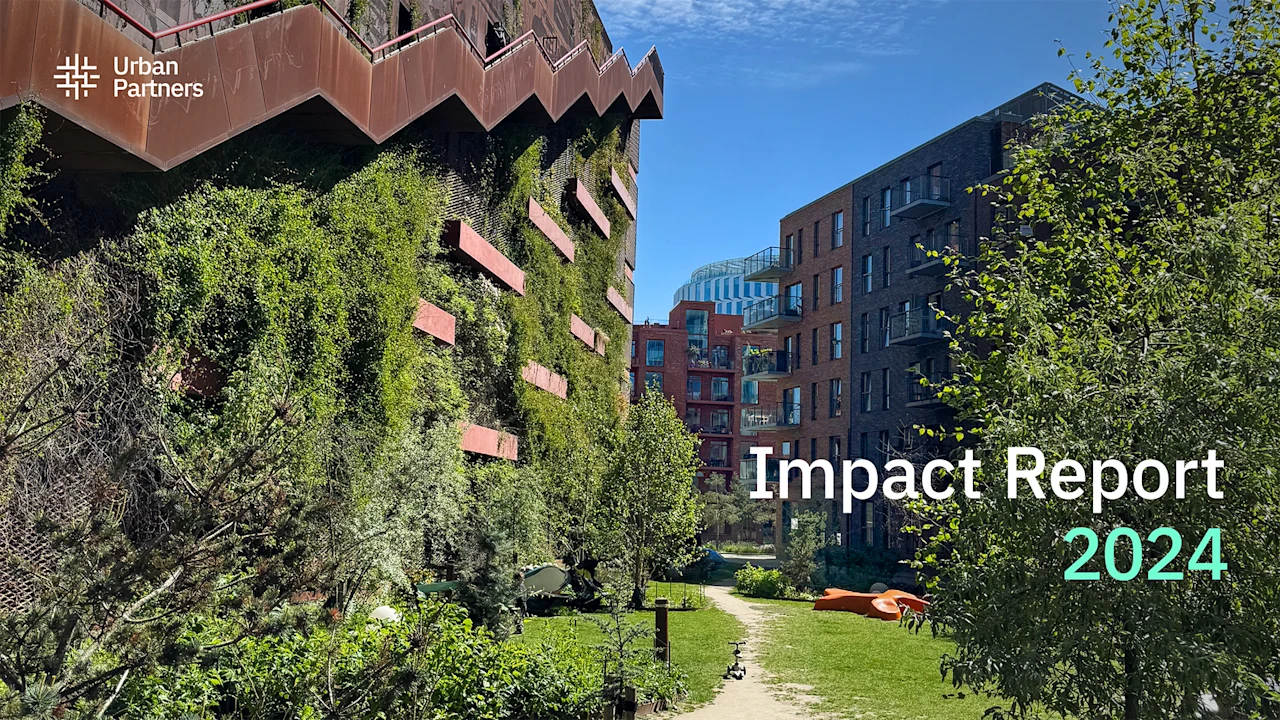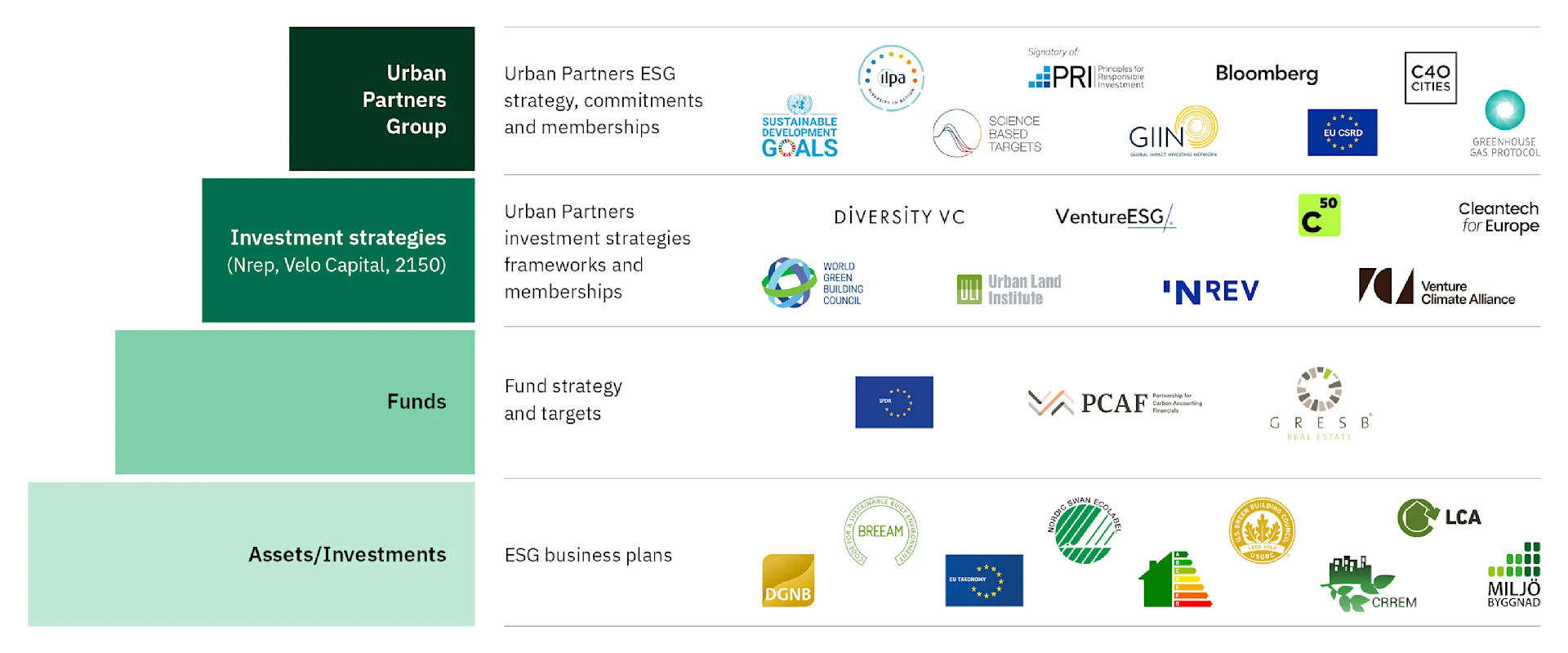
Decarbonization journey
Cities contribute some 70% of global emissions. Energy consumption, production of materials, and regulatory risks make decarbonization an integral part of our investment strategies: By finding and scaling commercially viable ways to decrease our carbon footprint, we de-risk our assets and enable creating societal value.
Climate mitigation and adaptation are at the core of all our investment strategies. We work with emissions categories across all scopes (1, 2 and 3), including both operational and upfront embodied emissions within real estate.

Industry leading commitments
We believe that wider adaptation of the Science Based Targets initiative can accelerate change in investment and real estate industry. In 2025, SBTi approved our targets for reducing greenhouse gas emissions , following us piloting the new SBTi Buildings Criteria the year before. Urban Partners’ 1.5°C-aligned target, is currently the most ambitious designation available through the SBTi process.
Urban Partners is committed to reducing absolute Scope 1 and 2 GHG emissions by 70 % by 2030, starting from a 2022 base year.
Always below Paris Agreement 1.5°C pathway
Urban Partners’ decarbonization efforts focus mainly on the real estate portfolio within our investment strategy Nrep, which accounts for over 90 % of our overall emissions. The targets set for the Nrep real estate portfolio are well within the SBTi embodied and operational (CRREM) carbon reduction pathways to stay aligned with the Paris Agreement’s ambition of limiting global warming to 1.5°C
Urban Partners commitment
70%
Urban Partners commits to reduce absolute scope 1 and 2 GHG emissions 70% by 2030 from a 2022 base year.
Operational emissions reduction
80 %
in GHG emissions intensity by 2030 from a 2022 base year.
Embodied emissions reduction
50 %
in GHG emissions intensity by 2030 from a 2022 base year.
No new fossil fuel equipments
0
No new fossil fuel equipment that are owned or financially controlled by the company in its “buildings” portfolios.

Urban Partners Impact Report for 2024 is now available
Discover our latest Impact Report, covering all our strategies and showcasing our commitment to creating positive change. Impact Report summarizes our achievements in 2024, underlining our commitment to bringing impact, value, and meaningful engagement with our peers, partners, and wider ecosystem.
Impact Report 2024
Thriving Communities
A sustainable approach to urban regeneration must be holistic, addressing both environmental and social factors. We have for many years focused on a community-anchored approach to urban development. In 2023, we continued and deepened our pioneering partnership with the Green and Thriving Neighborhoods program, which is led by C40, a global network of approximately 100 cities from around the globe. The aim is to accelerate the adoption of the 15-minute city and deliver a base of evidence to support new urban models.
Beyond catalyzing healthy neighborhoods, we are committed to helping communities thrive by supporting local initiatives across many of the locations we operate in, accentuating our hyper-local approach.

Frameworks & Commitments
Transparency and industry standardization are crucial to accelerate the green transition. Urban Partners builds its sustainability strategy around leading frameworks from group to asset level. Alignment with third-party validated frameworks ensures that Urban Partners deploys best practices and works transparently towards industry recognized, shared objectives. The Science Based Target initiative (SBTi) builds on deep climate science and has gained the necessary momentum to ensure alignment and comparability within industries and across sectors. We believe that wider adaptation of SBTi can accelerate change in the real estate industry.
